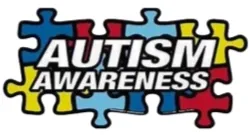Counseling for individuals and families throughout The State of New Jersey.
Counseling individuals and families throughout The State of New Jersey.
Life is a balance of holding on and letting go ~ Rumi
Anxiety can take many forms By Frank Healy, LPC
Anxiety takes many forms. It can be a panic attack when you feel like you’re having a heart attack. It can be fear of a specific thing, such as spiders, water, needles or close spaces. A specific phobia was probably caused by bad memory related to the feared object. For example, if you were knocked down by a big wave the first time you went into the ocean you may be afraid of water. General anxiety is caused by the belief that you will not be able to handle something. Memories of scary situations, such as parents fighting can cause you to believe that life is too much and you can’t handle it. It is helpful to get pictures, ask people what happened, and change the way you view the memory. By looking at pictures and talking to parents or others from your past you will retrieve good and bad memories. The next few ideas will show you how to resolve the memories.
Select a pleasant memory and a scary memory. Close your eyes, get comfortable, and visualize the pleasant memory for about 15 minutes. Then visualize the scary memory for about five minutes. Don’t be too rigid about the timing. After five minutes visualize a pleasant memory for 10 more minutes. Notice how you feel about the scary memory. You are likely to no longer be afraid.
When you were anxious, you probably have developed many beliefs such as, “I can’t handle much,” “life is scary,” and “people are scary.” Write the beliefs that you have from the positive as well as a negative memory. Compare the beliefs and see if any beliefs of the positive memory contradict the beliefs from the negative. For example, “I can’t handle much,” then you remember handling a difficult situation in the past. The belief can change to “I handled something as challenging as this in the past, so I can handle anything that is as challenging as this or less challenging.”
Obsessive-compulsive disorder is a form of anxiety. People with OCD might do things such as check stovetop burners, locks, or wash hands over and over to make sure that it is taken care of. The reality is that most likely it was taken care of (door locked, burner shut off, hands are clean) the first time. One simple technique for handling this is to say out loud, “the door is locked, the burner is off” etc. The sound remains in your mind for up to a minute and it can be reassuring that you did turn the burner off and lock the front door.
If you do not have positive memories to override the negatives ones you can take action with the support of a friend or a counselor. For example, suppose you were trapped in an elevator and are now afraid of elevators. You could go into an elevator with your counselor guiding you through the experience. If you were afraid of the water you and a friend can take swimming lessons together. There are many ways that you can change your thinking when you feel anxious. Apply the techniques and not only can you eliminate anxiety, but you will feel empowered that you can control your thinking and consequently control your feelings. Then you can move on to a happier, more successful present and future.
Fax
609-569-1510
Phone or Text
Send Mail To
P.O. Box 634
Absecon, NJ 08201
In-Office Consultations
6712 Washington Ave
Suite 305
Egg Harbor Township, NJ 08234
Mail is not accepted at this address.
Seaside Serenity Counseling LLC
All Rights Reserved









